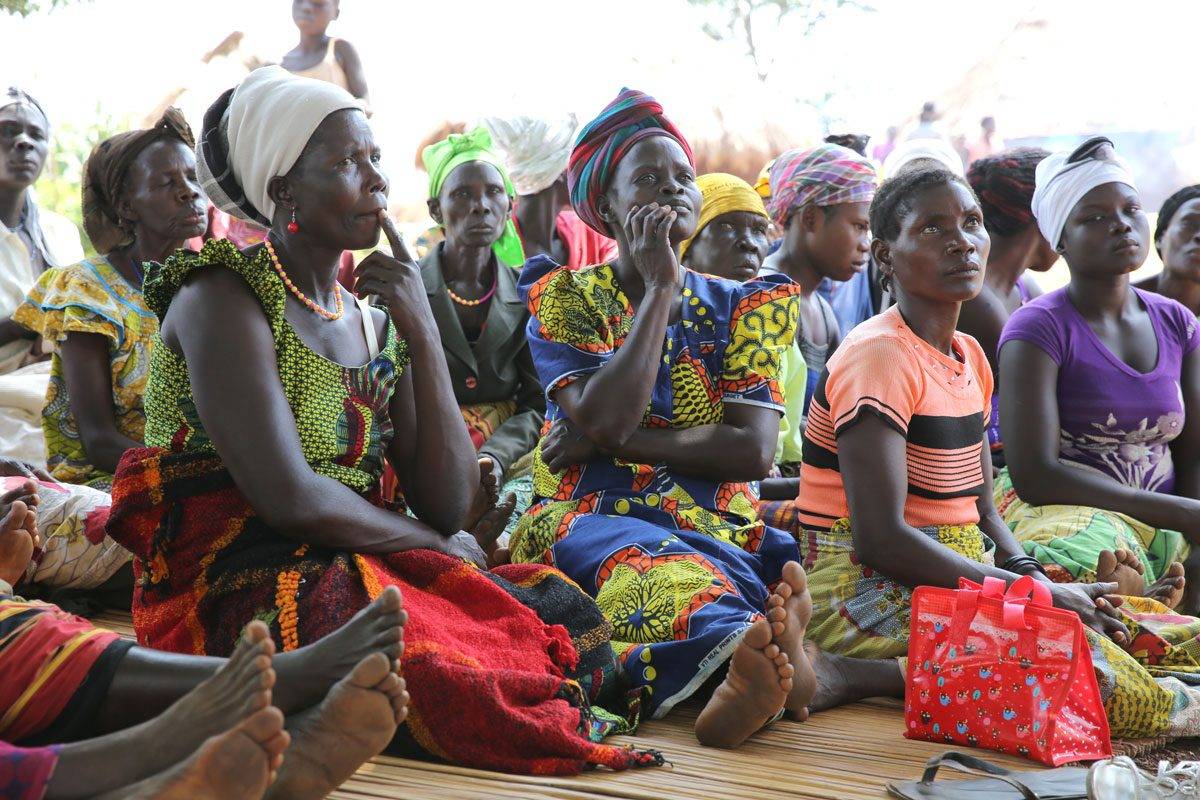Village Enterprise Raises USD 3.5 Mn In Initial Investment Round Aimed At Alleviating Poverty Through Entrepreneurship In Sub-Saharan Africa

Village Enterprise has announced the closing of an initial round of funding by the Village Enterprise Development Impact Bond (DIB); a subsidiary of Village Enterprise which is widely regarded as the one of the first of many impact bonds that are focused on alleviating abject poverty in rural regions of sub-Saharan Africa.
Sub-Saharan Africa’s struggles with hunger and extreme poverty are well-documented and it is with a view to alleviating this problem that Village Enterprise, together with Instiglio, is looking to form working partnerships with private impact investors and two of the world’s largest development agencies – the United States Agency for International Development’s Development Innovation Ventures (USAID DIV), and the U.K. Department for International Development (DFID).
Village Enterprise is an NGO that is committed to putting an end to hunger and extreme poverty in rural Africa through entrepreneurship and innovation. It boasts a ‘graduation program’ which sees to it that individuals who live on less than USD 1.90 per day are afforded access to business and financial training, ongoing mentoring, seed capital grants, and business savings networks. To its credit, the organization also lays claim to having successfully trained over 169,000 first-time entrepreneurs whilst positively impacting over 940,000 lives in the process.
The NGO’s partner in setting up the Development Impact Bond, Instiglio, is a non-profit firm that is dedicated to thoughtfully expanding the use of Results-Based Financing (RBF) in international development. It is also known to be one of the pioneers of impact bonds and outcome funds in emerging markets, with presence in over 18 countries across Africa and Latin America where it is reported to have partnered with governments and some of the big names in impact funding in a bid to achieve greater outcomes in a number of sectors which include health, poverty alleviation, and workforce development, amongst others.
The recently-raised working capital which is believed to amount to as much as USD 3.5 Mn, is reported to have been raised from the investment firm’s network of private investors and philanthropic sources.
With the injection of capital, small-time and first-time entrepreneurs whose businesses and livelihoods are jeopardized by extreme poverty are expected to be furnished with such perks as seed capital, training and mentoring. Central to the closing of the latest investment round is the vision to kickstart as many as 4,600 small businesses in rural Kenya and Uganda by 2020.
“Despite decades of development work and billions of dollars expended, over 760 million people still live in extreme poverty, over half of whom live in sub-Saharan Africa. Eliminating poverty is a global priority, but funding is limited. Mobilizing private capital is critical if we are to achieve the United Nation’s number-one Sustainable Development Goal (SDG) of ending extreme poverty by 2030,” said Dianne Calvi, CEO, Village Enterprise, in the wake of the new development.
As spelled out in a press release issued by Village Enterprise, nine impact investors will be weighing in with the funds to make up the working capital. The fund is expected to empower as many as 13,800 rural Africans who currently live below the poverty line with the resources with which they can attain some reasonable degree of self-sufficiency and economic emancipation.
The Delta Fund, the Laidir Foundation, the Silicon Valley Social Venture Fund, the Bridges Impact Foundation, as well as a number of individual investors, are amongst this team of investors that are looking to pull resources together with a view to overcoming the social challenge.
By virtue of the specifications of the partnership agreement, USAID and DFID are expected to pay Village Enterprise and its investors on the basis of the results achieved in lieu of the traditional model of payment-upon-program-delivery.
This relatively novel pay-for-success model guarantees that donor money will be linked to measurable indices in the form of increases in consumption and net assets (instead of income). The new DIB mechanism will also be looking to take advantage of a new and innovative ‘outcomes fund’ hosted by Global Development Incubator (GDI). This comes with the dual function of keeping all funds untouched in escrow whilst consolidating on such details as contracting, cash flow and processing by means of a single platform that is built on efficiency and scalability.
“This DIB, which pays Village Enterprise for improvements in income levels of very poor households, is remarkable because of the ambitious outcomes it incentivizes,” remarked Avnish Gungadurdoss, Managing Partner, Instiglio, as he commented on the closing of the funding round. He stated further, “By tying funds to such ambitious outcomes and providing full flexibility for Village Enterprise to innovate on its program design and delivery practices, this DIB aims to enable a leap in the program’s cost-effectiveness. We also hope to generate important lessons on how to effectively commission, adapt and scale promising poverty alleviation programs.”
The latest funding round could be considered as one of the all-important first steps in the journey whose destination is the long-term goal of scaling the poverty alleviation outcomes fund to trigger the influx of capital available for poverty reduction and job creation programs, with a lot of emphasis on the achievement of measurable results.